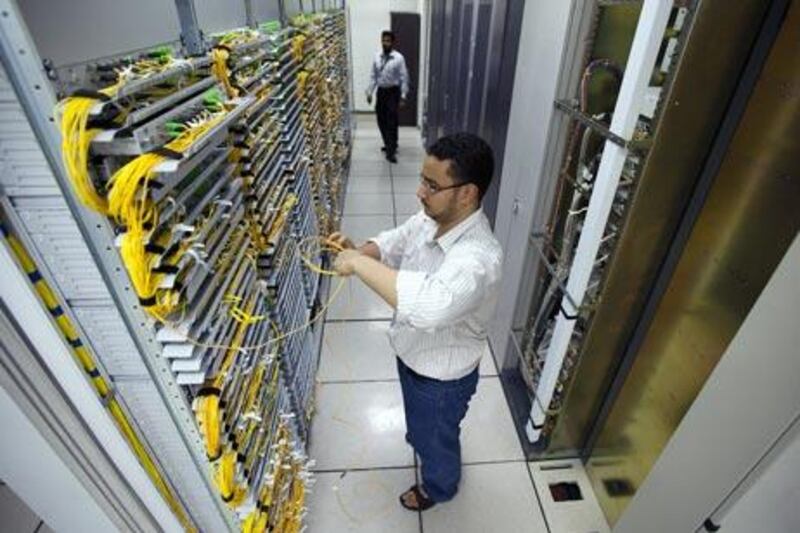Etisalat and du employees are internally testing the nationwide rollout of telecommunications services intended to spur competition in a market of more than 1.4 million customers.
Last year, both of the country's telecoms operators finalised discussions to gain access to each other's broadband internet and television networks in a move that will break each other's monopoly within their respective territories.
Etisalat has a monopoly on providing internet and cable television services throughout most of the country, while du holds sway over a small area of Dubai that includes newer neighbourhoods such as Dubai Marina and Media City.
Khalifa al Shamsi, the senior vice president of marketing at Etisalat, said that the operator's employees are doing home testing to ensure that its network can be accessed in du's territory.
"The only thing that is happening right now is test users within the companies themselves is doing the testing as far as verification ... and the [various] scenarios to ensure the seemless conversion," Mr al Shamsi said.
However, Mr al Shamsi could not provide an indication when the offerings will be approved by the Telecommunications Regulatory Authority (TRA) and made available throughout the UAE.
"There has been no announcement been done about broadband coming to the areas yet," Mr al Shamsi said.
"The minute we are comfortable with the progress, we will announce the firm date for it."
Last month, Mohamed al Ghanim, the director general of the Telecommunications Regulatory Authority (TRA), said that there was a number of delays behind the main technology behind the application of the Etisalat and du networks.
The technology is called "bitstream" and is installed on software and hardware packages to identify when a subscriber of one operator is using the telecoms service provided by the other.
dgeorgecosh@thenational.ae





